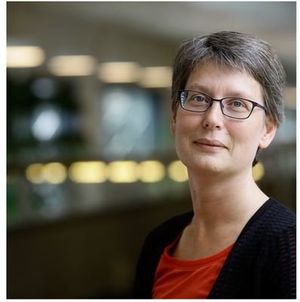Paulien Herder joins 3mE for e-Refinery initiative
 Paulien Herder, professor of energy systems at the Faculty of Technology, Policy and Management and chair of the Delft Energy Initiative, joined the Department of Process and Energy part time on 1 January 2018 in order to run the e-Refinery initiative. E-Refinery is a university-wide initiative of TU Delft that sees three faculties (AS, 3mE and TPM) joining forces in the field of the electrification of the chemical and energy sectors. Professor Bernard Dam (materials for energy conversion and storage) from the Faculty of Applied Sciences is involved as scientific driver and initiator. The researchers working in this partnership are focusing on the transition of the energy and chemical sectors from dependence on fossil fuels to renewable feedstocks and electricity. The electricity is generated from renewable sources, such as solar and wind power. The expertise at TU Delft enables it to assume the role of pioneer and start investing in human capital, as well as technological innovation and capacity in the field of electrochemical conversion.
Paulien Herder, professor of energy systems at the Faculty of Technology, Policy and Management and chair of the Delft Energy Initiative, joined the Department of Process and Energy part time on 1 January 2018 in order to run the e-Refinery initiative. E-Refinery is a university-wide initiative of TU Delft that sees three faculties (AS, 3mE and TPM) joining forces in the field of the electrification of the chemical and energy sectors. Professor Bernard Dam (materials for energy conversion and storage) from the Faculty of Applied Sciences is involved as scientific driver and initiator. The researchers working in this partnership are focusing on the transition of the energy and chemical sectors from dependence on fossil fuels to renewable feedstocks and electricity. The electricity is generated from renewable sources, such as solar and wind power. The expertise at TU Delft enables it to assume the role of pioneer and start investing in human capital, as well as technological innovation and capacity in the field of electrochemical conversion.
Paulien Herder: ‘E-Refinery will enable us to bring together people from different disciplines and develop a joint vison of how to transition to electrification and decarbonisation in the Netherlands. I see it as my task to establish and maintain this community in Delft and the Netherlands.’
E-Refinery: partnership
The E-Refinery initiative is a partnership between three faculties: Applied Sciences (Chemical Engineering department), 3mE (Process & Energy department) and TPM (Engineering Systems & Services department). Researchers of these faculties who focus their research on the electrochemical conversion of sustainable electricity into fuels will be contributing to the initiative. This university-wide initiative aims to develop into a 4TU and a national programme, in line with the recent recommendations of the ECCM (Electrochemical Conversion and Materials) committee to the Energy, Chemistry and HTSM ‘top sectors’.
Challenges at three levels
Converting sustainable electricity into chemical compounds is a method of flexible energy storage that can help resolve the mismatch between energy supply and demand.
Moreover, the large-scale production of synthetic fuels (for example for long-distance transport) and the production of platform chemicals as a basis for other raw materials can help bring a CO2-neutral economy closer. To achieve this, there are challenges on at least three levels. At the micro-scale it concerns catalysis, materials and electrochemistry. At the meso-scale the challenges involve transport phenomena, reactor science, upscaling and process intensification. Finally, the macro-scale involves process and system integration, system transition and social and economic embedding.
The website of E-Refinery
Read more about E-Refinery (PDF)